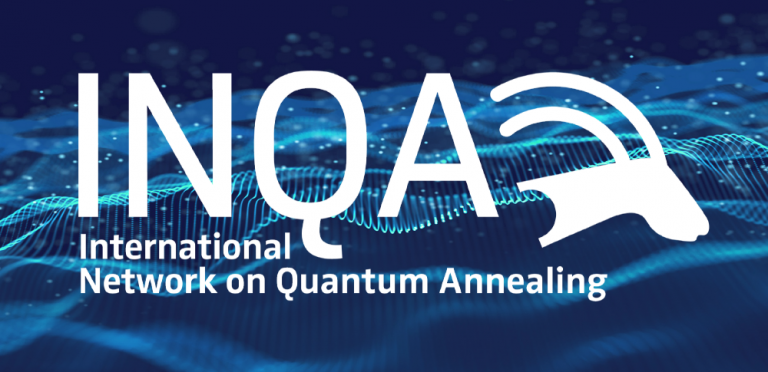An International Network on Quantum Annealing

The International Network on Quantum Annealing (INQA) will for the first time establish a mechanism by which four global collaborations come together to share technical and intellectual know-how and critically analyse developments in theoretical and experimental research in quantum annealing.
Upcoming Seminars
- November 5 2024 | 17:00 UTC | Steve Campbell | University College Dublin
- Speeding up Quantum Annealing with Engineered Dephasing
Building on the insight that engineered noise, specifically engineered dephasing, can enhance the adiabaticity of controlled quantum dynamics, in this talk I discuss how a dephasing-generating coupling to an auxiliary quantum system affects quantum annealing protocols. From the exact reduced system dynamics, we will see how this coupling enhances the system's adiabaticity solely through a coherent mechanism--an effective energy rescaling. I will show that it can lead to an annealing speedup linearly proportional to the strength of the coupling. The experimental feasibility of the protocols, in particular the trade-off between fidelity and implementability will also be discussed, as well as some limitations of the protocol and its comparison with other techniques to speed up adiabatic dynamics. - November 12 2024 | 09:00 UTC | Ilia Luchnikov | The Technology Innovation Institute
Large-scale quantum annealing simulation with tensor networks and belief propagation
Quantum annealing offers significant promise for accelerating the solution of optimization problems, with the potential to revolutionize a wide range of applications. However, for quantum algorithms to achieve a performance advantage over classical solvers, quantum circuits must be scaled to sizes and performance levels far exceeding the capabilities of current hardware. To address this challenge, recent experimental efforts have concentrated on optimization for 3-regular graphs — problems that are computationally challenging, yet experimentally feasible. Despite these advancements, the precise quantum resources, both in terms of quantity and quality, required for quantum solvers to surpass classical methods remain uncertain. In our research, we show that quantum annealing for 3-regular graphs can be simulated classically, even for systems with up to 1,000 qubits and 5 million two-qubit gates. This was accomplished by utilizing recent innovations in tensor network techniques and developing a new Graph Tensor-Network Quantum Annealing (GTQA) algorithm. In my talk, I will introduce the GTQA algorithm and discuss our numerical study, alongside a justification of its correctness.
Visit past seminars to view a list of all of our past seminars and their abstracts.
If you miss any of our live seminars you can watch our previous sessions on our YouTube Channel.
About INQA
The INQA network unifies the research activities of major global collaborations in quantum annealing in North America, Japan, the European Union and the United Kingdom.
By hosting weekly on-line seminars and annual international conferences and by funding exchange visits, the INQA network will address the key topics which will enable quantum annealing to move towards a true quantum scaling advantage over classical approaches to NP-hard computational problems.
The topics INQA will focus on include:
- Exploiting quantum coherence
- Extending the order and degree of qubit interactions
- Strategies for error correction
- Exploiting diabaticity and non-stoquasticity in a systematic way
The network will be led by Professor Paul Warburton of UCL, who is a co-investigator in the UK’s Quantum Computation and Simulation (QCS) Hub and in the recently-announced QEVEC project. He was also previously a co-investigator in the US-led QEO and QAFS collaborations.
Members of the management board include:
- Prof Paul Warburton (UCL, UK)
- Dr Pol Forn-Díaz (IFAE, Spain)
- Dr Shiro Kawabata (AIST, Japan)
- Prof Viv Kendon (University of Strathclyde, UK)
- Dr Jamie Kerman (MIT Lincoln Lab, USA)
INQA is supported by a International Network Grant from the UK Engineering and Physical Sciences Research Council.
 Close
Close

